The Month of Gói or Women’s Month
Sorry I dropped off writing about the months. I’ll pick up now with the month of Gói, which is the fifth winter month in the Norse calendar. We don’t know a lot about the traditions of this  particular month, except that the Norse named it after the daughter of Þorri, or Thorri. The month of Þorri precedes Gói, and is most known for its Thorrablot. Thorri is a winter spirit, akin to our own Jack Frost. Farmers held a blot to Gói in this month to welcome her. Tradition states that this month was the month where men took care of their women more. I can totally get behind that.
particular month, except that the Norse named it after the daughter of Þorri, or Thorri. The month of Þorri precedes Gói, and is most known for its Thorrablot. Thorri is a winter spirit, akin to our own Jack Frost. Farmers held a blot to Gói in this month to welcome her. Tradition states that this month was the month where men took care of their women more. I can totally get behind that.
Weather During the Month of Gói
Gói runs somewhere between mid-February to mid-March, so there’s no doubt that even if the Spring Equinox is just around the corner, the weather during Gói was daunting during Viking times. The temperature in Norway was probably high 20s to low 40s Fahrenheit during the month, with occasional drops below zero. Sure, there were thaws, but the weather was too cold to consider planting, given that you could have some pretty nasty freezes. I suspect that farmers welcomes Gói because of the signs of an upcoming spring (even though they had only two seasons: winter and summer). Maybe Gói was considered a herald for summer when the farmers could plant their crops? Regardless, it’s unlikely anyone farmed during this time.
What Did People do with All that Winter?
At this point, you’re probably wondering how people didn’t go stir-crazy with all that winter. There were plenty of things to do during winter, especially crafting and repairs. People had to keep their livestock alive, which meant proper care for them in the winter so they would have wool, fiber, meat, and milk for the rest of the year. There was hunting, if you wanted fresh meat. They also played games, sang, told stories, and prepared their tools and weapons for the upcoming summer. And they had skis and ice skates to get around on the snow and lakes.
Food was what they preserved over the summer and fall. The cold, dry air allowed them to dry fish and other meats using a brine to help preserve them. The only fresh food was the meat 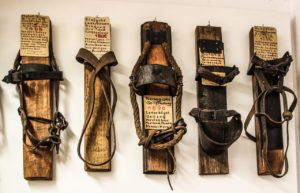 they could hunt and catch, and perhaps milk, if their cows or goats started to calve or kid. As a side note, you know all about the Christmas fruitcake, made from dried fruit and nuts. Well, I suspect these cakes come from earlier times as a way to provide a treat with fruit, even when the fresh fruit was out of season.
they could hunt and catch, and perhaps milk, if their cows or goats started to calve or kid. As a side note, you know all about the Christmas fruitcake, made from dried fruit and nuts. Well, I suspect these cakes come from earlier times as a way to provide a treat with fruit, even when the fresh fruit was out of season.
New Life
About this time, the livestock would start giving birth to their offspring. I know, because that’s how my goats are, if I breed them. The Viking farmers would’ve kept their calves, kids, and lambs inside with the other livestock, possibly in a birthing pen so the little ones could stick around their mom and not get trampled by the rest of the herd. They would’ve taken the extra milk to make cheese or use in cooking after the young ones had eaten their fill.
So, the month of Gói was largely spent in preparation for summer. In a few weeks, I’ll talk about the next month, Einmánuður.
—
Do you like what you’re reading on The Rational Heathen? Want me to continue to give you great content? Support me on Patreon for just $1 a post. My Patreon supporters get cool, exclusive posts and other freebies. Check it out!
Become a Patron!
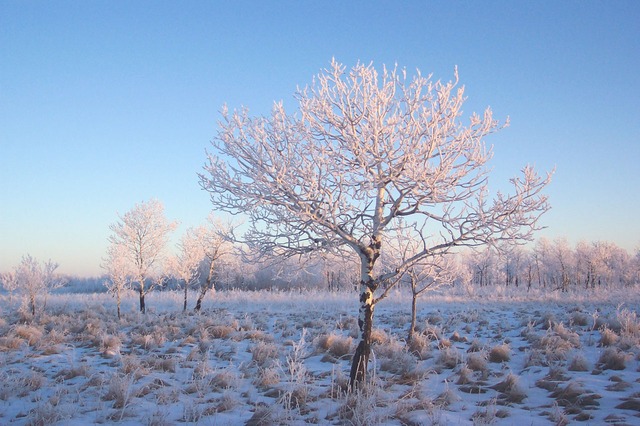




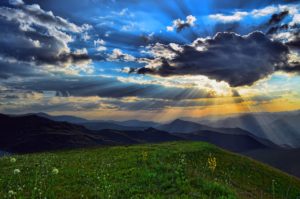 Being mindful and paying attention to the land opens a whole new world of experiences you never knew existed. You start noticing not only the cooler temperatures of autumn setting in, but also the increase or decrease in humidity that follows the change. Maybe you start seeing stratus clouds and high cirrus replace the fluffy cumulus. Maybe you see a shift in the bird population, the increase or decrease of certain insects, or even the shift in the quality of light you get. Instead of noticing the latest fall fashions creeping into people’s wardrobes, you notice how the squirrels are moving from tree to tree to gather food. You may see different species of birds. If you live in a place with deer, you may see a shift in their foraging.
Being mindful and paying attention to the land opens a whole new world of experiences you never knew existed. You start noticing not only the cooler temperatures of autumn setting in, but also the increase or decrease in humidity that follows the change. Maybe you start seeing stratus clouds and high cirrus replace the fluffy cumulus. Maybe you see a shift in the bird population, the increase or decrease of certain insects, or even the shift in the quality of light you get. Instead of noticing the latest fall fashions creeping into people’s wardrobes, you notice how the squirrels are moving from tree to tree to gather food. You may see different species of birds. If you live in a place with deer, you may see a shift in their foraging.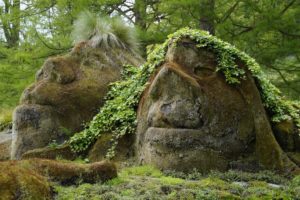 At this point, you may be wondering how this makes you a better Heathen. Let’s think about this a bit: our gods and the landvaettir are nature entities. Even Odin, who is our creator god, deals with natural forces. (How much more natural is the creation of life?) So, we’re looking at gods who reside over nature. By paying attention to things not human made, we gain a deeper understanding in the world around us. You become a better Heathen, and you even open yourself up to the wights and gods. It may or may not be a type of magic, but I know it works.
At this point, you may be wondering how this makes you a better Heathen. Let’s think about this a bit: our gods and the landvaettir are nature entities. Even Odin, who is our creator god, deals with natural forces. (How much more natural is the creation of life?) So, we’re looking at gods who reside over nature. By paying attention to things not human made, we gain a deeper understanding in the world around us. You become a better Heathen, and you even open yourself up to the wights and gods. It may or may not be a type of magic, but I know it works.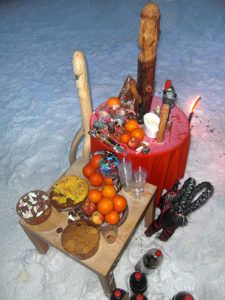 gods without all the mumbo-jumbo. In fact, I suspect it’s the best way to get in touch with the gods. You don’t get a conversation with the gods from mumbling prayers or sacrificing goats usually. You get that from opening yourself to them and seeing who pops up. That requires paying attention to them and listening to what they have to say.
gods without all the mumbo-jumbo. In fact, I suspect it’s the best way to get in touch with the gods. You don’t get a conversation with the gods from mumbling prayers or sacrificing goats usually. You get that from opening yourself to them and seeing who pops up. That requires paying attention to them and listening to what they have to say.